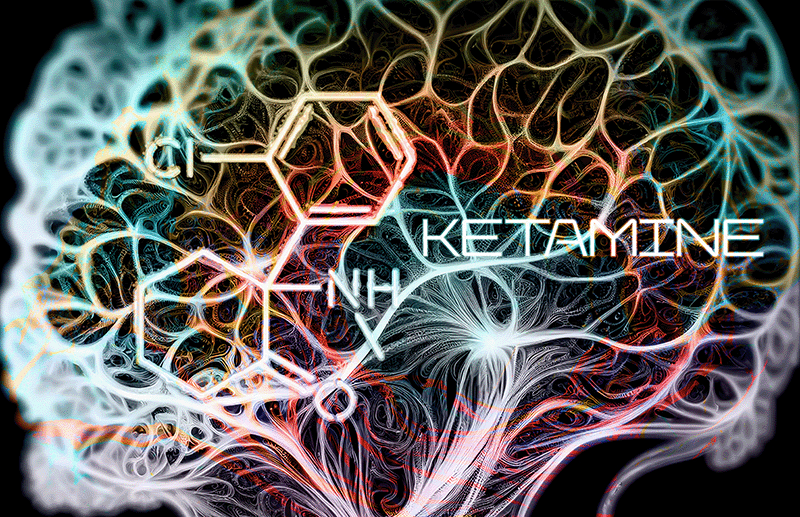Deprescribing with Psychedelics
As the world’s understanding and acceptance of psychedelics as potential therapeutic agents grow, new avenues of mental health treatment are opening. One such promising direction is Deprescribing with Psychedelics. Kathryn A. Walker, a pioneer in mental health treatments and founder of Revitalist, has been instrumental in advancing this progressive approach to mental health care.
Deprescribing: What is it?
Deprescribing is a medical approach that involves the intentional discontinuation or dose reduction of medications that may be unnecessary, ineffective, or potentially harmful. It’s a collaborative and patient-centered process, guided by a healthcare provider, which involves thorough patient assessment, careful planning, and close monitoring.
Deprescribing has been gaining attention as a viable approach to manage polypharmacy and minimize the risk of adverse drug events. It’s especially relevant in treating mental health disorders where patients are often on multiple medications, some of which may cause more harm than good over the long term.
Deprescribing involves reducing or discontinuing medications that may no longer be beneficial or could be causing harm. When paired with the potent therapeutic properties of psychedelics, deprescribing can provide a unique pathway to improved mental well-being.
This comprehensive article will explore the concept of Deprescribing with Psychedelics, outlining its foundations, benefits, challenges, and the future of this innovative approach. We’ll delve into the therapeutic potential of psychedelics and how they can be integrated into a deprescribing plan for optimal mental health outcomes.
Psychedelics: A New Age in Mental Health Treatment
Psychedelics, previously notorious for their close ties to counterculture movements and recreational abuse, have undergone an unexpected renaissance in recent years. Once largely dismissed by the medical establishment, these substances are now emerging as potential therapeutic game-changers, transforming the landscape of mental health treatment.
Historically, the term “psychedelic” conjures images of illicit substances used recreationally for their consciousness-altering effects. Today, however, this perception is rapidly changing. A growing body of scientific research is demonstrating the therapeutic benefits of substances such as psilocybin (found in magic mushrooms), LSD (lysergic acid diethylamide), MDMA (commonly known as ecstasy), and ketamine. These substances are being rigorously studied and clinically trialed for their potential in treating a range of mental health conditions, including depression, anxiety, post-traumatic stress disorder (PTSD), and substance use disorders.
The shift in perception is largely due to our improved understanding of how these substances interact with the brain. Psychedelics are believed to work by disrupting default patterns of brain activity. This disruption is thought to help form new neural connections and patterns, a process known as neuroplasticity. By facilitating such change, psychedelics can provide patients with a unique opportunity to explore and address deeply ingrained emotional issues and traumas, often leading to profound personal insights and long-lasting psychological change.
Ketamine, an anesthetic that has been used in medical settings for over 50 years, is a prime example of this. It has demonstrated significant promise as a rapid-acting antidepressant, especially for individuals with severe and treatment-resistant depression. Unlike traditional antidepressants that can take weeks to exert their effects, ketamine often provides relief within hours of administration. This has opened up new avenues for treatment and hope for those who previously found no respite from their depressive symptoms.
MDMA, once known primarily as a party drug, is also showing remarkable therapeutic potential. In the context of psychotherapy, MDMA has shown significant efficacy in reducing symptoms of PTSD. By temporarily reducing fear and increasing feelings of trust and empathy, MDMA can facilitate a therapeutic process where individuals can revisit and process traumatic memories without becoming overwhelmed.
Psilocybin, the active compound in magic mushrooms, is another psychedelic substance that is being recognized for its therapeutic potential. Research has demonstrated promising results in the use of psilocybin-assisted therapy for treating depression and anxiety, especially in patients facing life-threatening illnesses. These patients often grapple with existential distress and end-of-life anxiety, and psilocybin therapy has been shown to alleviate such symptoms, often leading to improved quality of life.
It’s important to note that while these substances have shown potential, they are not without risks, and their therapeutic use should always be supervised by trained professionals. Furthermore, the effects of these substances can be intense and even distressing, particularly without the right preparation and support. Nevertheless, the burgeoning field of psychedelic therapy signals a new age in mental health treatment, one that offers new hope and avenues for healing. With continued research and careful clinical practice, the therapeutic potential of psychedelics may become an integral part of our mental health care toolkit.
Deprescribing with Psychedelics: A Synergistic Approach
Deprescribing with Psychedelics is an innovative therapeutic approach that blends the benefits of psychedelic therapy with the judicious practice of deprescribing. Deprescribing is a process that involves the planned and supervised reduction or cessation of medication, with the goal of managing polypharmacy and improving patient health outcomes. When coupled with the profound therapeutic potential of psychedelics, this approach can revolutionize the treatment of various mental health disorders.
This synergistic method holds great promise, particularly for patients who are on a regimen of multiple psychiatric medications or for those grappling with significant side effects from their existing pharmaceutical treatments. These individuals often find themselves in a complex predicament – needing relief from distressing symptoms yet struggling with the adverse effects of their medication. Deprescribing with psychedelics can potentially offer a way out of this therapeutic impasse.
The premise behind this approach rests on the unique psychological effects induced by psychedelic substances. Unlike traditional psychiatric medications, which primarily manage symptoms, psychedelics can help address the underlying causes of mental health disorders. They facilitate introspective and transformative experiences, often helping individuals uncover, understand, and resolve deep-seated emotional issues, traumas, or unhelpful thought patterns. As such, the need for long-term medication might be significantly reduced.
Moreover, psychedelic experiences often endow patients with fresh perspectives and novel coping mechanisms, providing them with a mental and emotional toolkit to manage their conditions more effectively. Insights gained from these experiences can result in significant shifts in thought and behavior, promoting personal growth, self-awareness, and resilience.
Coupled with the deprescribing process, these therapeutic benefits can ease the transition off medications. In a supportive and controlled therapeutic setting, patients can gradually reduce their medication dosages while concurrently engaging in psychedelic therapy sessions. It’s a methodical process that needs to be carefully planned and monitored by healthcare professionals to ensure safety and efficacy.
It’s important to clarify that deprescribing doesn’t mean an abrupt or complete discontinuation of all medications. The process is highly individualized and takes into account each patient’s medical history, current health status, and personal needs. Some patients might still need to continue certain medications or adjust to lower dosages, while others may successfully transition off their medications. The ultimate aim is to optimize each patient’s treatment plan, reduce medication-related risks, and enhance overall well-being.
Deprescribing with psychedelics marks a shift in mental health care, moving away from a primarily pharmacological approach towards one that integrates the mind-altering potentials of psychedelics. It’s a promising pathway that warrants further research and thoughtful clinical implementation. With proper guidance and careful consideration, this approach could potentially revolutionize the treatment of mental health disorders, offering patients not only symptom relief but also a deeper level of psychological healing and growth.
The Future of Deprescribing with Psychedelics
As research into psychedelic therapy continues to expand, the potential for integrating psychedelics into deprescribing plans grows. With careful planning, patient education, and close monitoring, Deprescribing with Psychedelics could transform the way we treat mental health disorders, shifting the focus from lifelong medication management to targeted therapeutic interventions that address the root causes of mental suffering.
However, this innovative approach is not without its challenges. Psychedelic substances are still classified as Schedule I drugs under the Controlled Substances Act, and their use in therapy is largely restricted to research settings. There’s also a need for more research to understand the long-term effects of psychedelic use and to develop standardized treatment protocols.
Despite these hurdles, the future of Deprescribing with Psychedelics appears bright. With pioneers like Kathryn A. Walker leading the way, this innovative approach could revolutionize mental health treatment, offering a promising new pathway to healing and wellness.
The integration of Deprescribing and Psychedelic Therapy represents a significant paradigm shift in mental health treatment. As we continue to understand the therapeutic potential of psychedelics, their role in facilitating deprescribing and improving mental health outcomes becomes increasingly apparent. Although challenges remain, the ongoing research and clinical trials provide a hopeful glimpse into a future where Deprescribing with Psychedelics could become a standard treatment approach for many mental health disorders.
Contact Kathryn
Let Kathryn Help Your Journey To Wellness
Kathryn A. Walker's expertise in the field of ketamine treatments can be a valuable resource on your wellness journey, especially if you're seeking alternative solutions for treatment-resistant mood disorders. Her pioneering research and insights into ketamine's potential can offer hope and guidance, providing you with a deeper understanding of the possibilities for improving your mental health and overall well-being.
News Articles
Wellness Blog
Ketamine has garnered significant attention in wellness blogs due to its emerging potential as a novel treatment for treatment-resistant depression and other mood disorders.
Wellness blogs often explore the latest research and personal experiences with ketamine therapy, providing readers with valuable insights and considerations in their pursuit of mental health and well-being.
The Neurologic Power of Ketamine and Psychedelics: How Science is Overtaking Theory
Introduction In the realm of mental health, the intersection of neuroscience and treatment is a rapidly evolving frontier. As our understanding of the brain deepens, so does our ab
The Need for Disruption of the System – Why Our Mental Health System is Imploding
Introduction In the realm of healthcare, few areas are as critical, yet as overlooked, as mental health. Despite the fact that mental health disorders are among the leading causes
The Empathy of the Brain: How Ketamine and Psychedelics Allow Us to Reconnect with Ourselves
Introduction In the vast and complex world of neuroscience, one of the most intriguing areas of study is the exploration of how certain substances, such as ketamine and psychedelic



